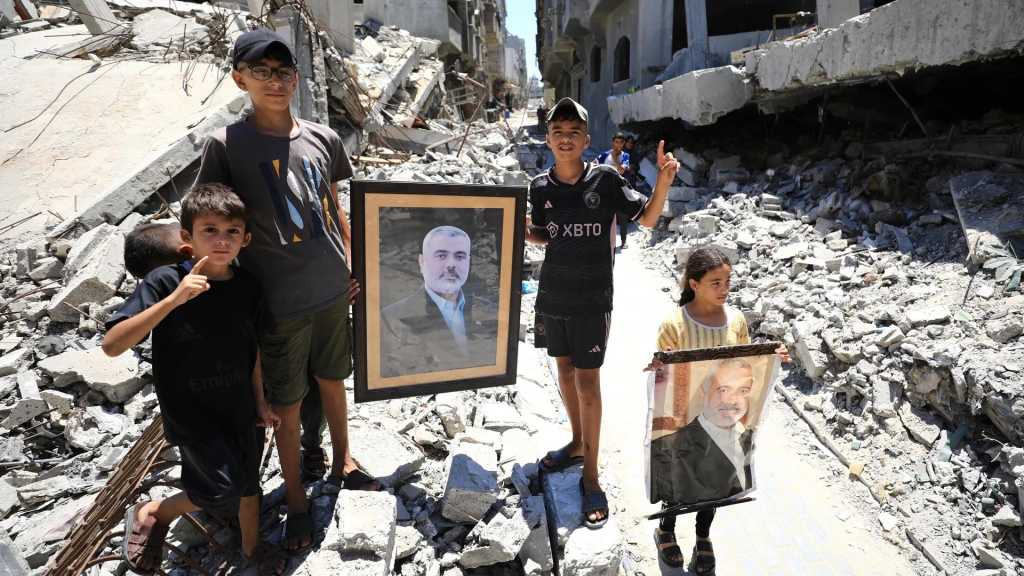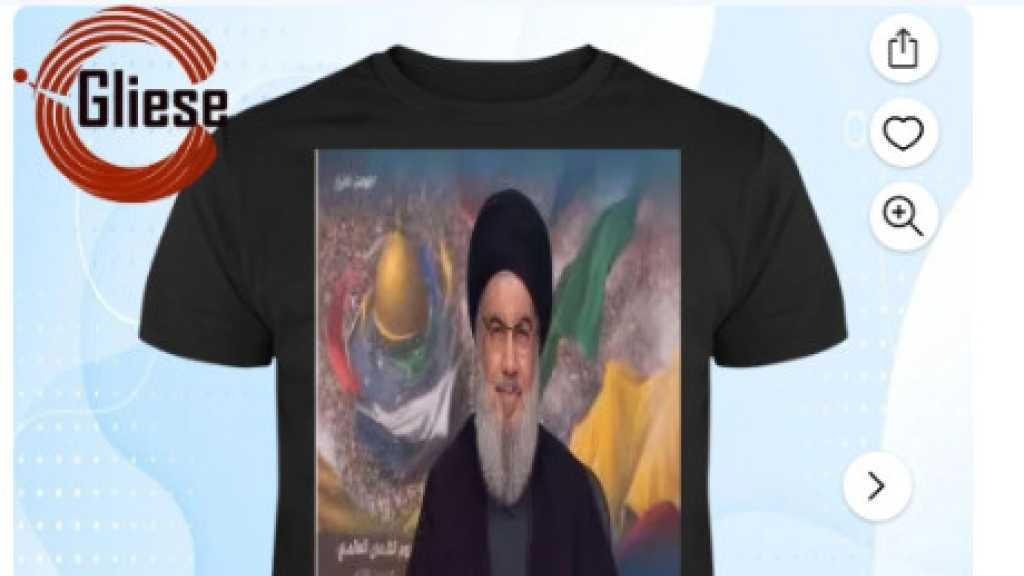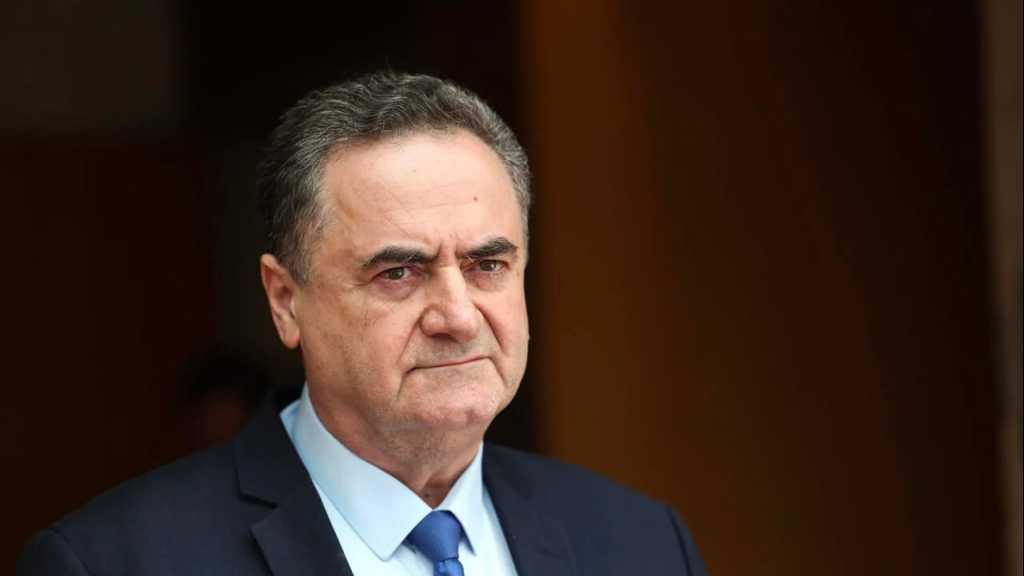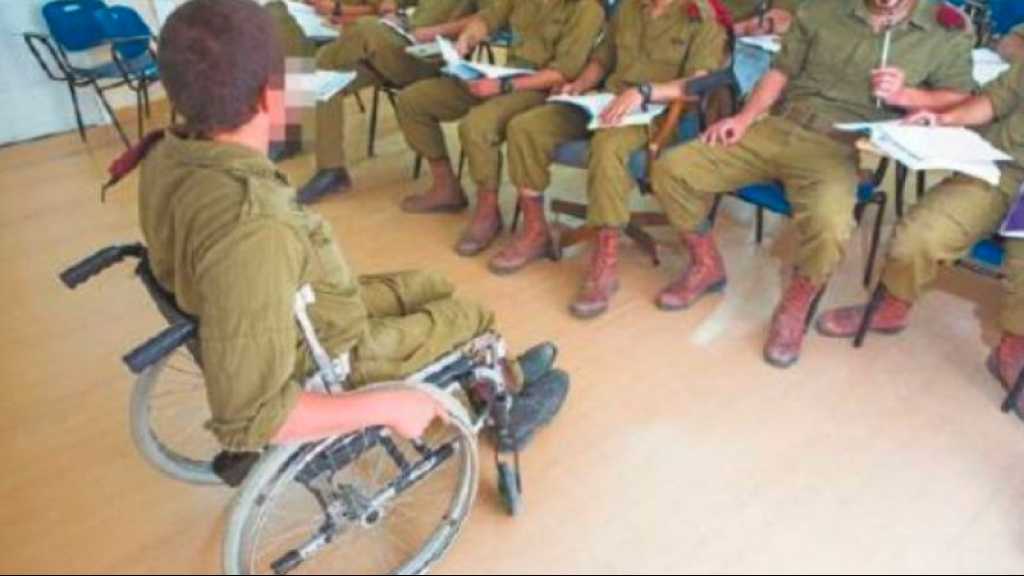
Exiled "Israeli" academic: Zionism, a very clear ideology of exclusion, racism and expulsion

Disclaimer: The following article is the selection of the website editor. It reflects the opinions and views of its author and does not necessarily reflect the views of Hizbullah Official Website.
Source: Daily Star/Inter Press Service, 20-06-2008
Interview - By Apostolis Fotiadis
ATHENS: Support for an academic boycott of 'Israeli' universities exposed Ilan Pappe to death threats last year, forced him to resign as senior lecturer of political science at the University of Haifa, and leave the country. His argument that the creation of 'Israel' in 1948 was followed by a policy of cleansing 'Israeli' territory of Arab Palestinians, his support for the Hamas resistance despite rejecting its political ideology, and the denouncement of 'Israeli' academia for justifying the occupation of Palestine have made him an unwanted person in 'Israel'.
But still he remains a firm believer that the only way to improve this reality is by exposing its worst aspects.
In an interview with IPS, Pappe discusses the current situation in Palestine and the Arab-'Israeli' conflict 60 years after it began.
IPS: Can Barack Obama's victory make a difference?
IP: I think people who strive to hold the post of the strongest person in the world are not interested in moral issues, or are really moved by suffering and oppression. Obama is no different, and the morality of the issue or the suffering of the Palestinians would not move him. He would move in a different direction if he and his advisers would feel that showing less support for 'Israel' enhances their political power. So far this is not the case. It is better to be pro-'Israeli' to win American elections and be re-elected for the second term. If there is any hope, this is from a second term, when the powerful men are brought back to their normal human size again, and may begin to think like you and me about injustice, oppression and occupation.
IPS: Are we today experiencing the worst moment of the Arab-'Israeli' conflict since it first began?
IP: I still think the worst moment was 1948 and the ethnic cleansing; but it is very bad indeed. It is the final stages of the 'Israeli' unilateral attempt to divide the West Bank into two parts, one annexed to 'Israel' and the other maintained as a big prison camp, or a Bantustan at best. The situation in the Gaza Strip is worse, there the "prison" is already in place, and because of the resistance by the Palestinians to the imprisonment, 'Israel' launches an escalating policy of massive killings. The world seems indifferent, and the Arab world uninterested.
IPS: During his last visit to the region US President George W. Bush described 'Israel' as an example of progress and democracy in the Middle East. How objective do you find his view?
IP: A society that endorses a 40-year occupation of another people cannot be a liberal one. A society that discriminates against 20 percent of its population because they are not Jews cannot be described as progressive. The problem in 'Israel' is not the role of religion or tradition; it is the role of Zionism, a very clear ideology of exclusion, racism and expulsion.
This ideology allows the army to play a significant role in most of the domestic and foreign policies, and it is probably right to say that 'Israel' is not a state with an army, but an army with a state.
IPS: To what extent does the United States follow a policy of aggravating conflicts in the region while simultaneously calling for revival of the peace process? Does something similar happen with Palestinian militants who capitalize on people's rage? Are we experiencing an organized hypocrisy in the Middle East?
IP: I am not sure everyone is hypocritical in the same way or degree. Political elites in general are manipulators of people's tragedies and dreams, but they do differ. The worst is the American administration as in its case the gap between words and actions is the widest.
Talk of peace accompanies acts of war, support for negotiations in Palestine are actually the endorsement of 'Israel's' occupation etc.
'Israeli' politicians are more transparent, their racism and oppressive plans are quite clear, but nobody in the West, and in particular Europe, is willing to do anything.
On the other hand the Palestinian Authority (PA) is not a paragon of honesty, and in fact this is why the Hamas [Movement] won the election [in 2006], but Hamas is trapped in an abnormality that would disable any political group from behaving differently. This is why the PA has to be dismembered.
IPS: On the other hand do you agree with those who see an advance of radical Islam never seen before in Palestine?
IP: Religion will continue to play for a long time a role in the life of the Palestinians, politically and socially. Whether it would be an aggressive stance or a constructive one depends entirely on the occupation and its oppressive realities. Once they are gone there is a better chance for building a political set-up that includes, rather than excludes, various ideological movements.
The advance of Hamas has a regional and local dimension. In the regional dimension it is part of the overall disappointment with the political regimes and their Western supporters. Locally, it is more directly connected to the occupation and the failure to liberate Palestine by the more secular forces. Most of Hamas support comes from the political vacuum and people's sense of defeat.
IPS: How has the abuse of history influenced the Arab-'Israeli' conflict up until today, and is there a way back to an objective understanding of what has happened?
IP: History was used especially in 'Israel' to justify past criminal policies. This is the main abuse of history. It is also abused in the way that the historical narratives are employed to educate the next generations in one-dimensional, nationalist, one could say even, racist, mould. The most deplorable part of it is the abuse of the Holocaust memory [A name used to describe only the Jewish part of the total sum of millions of victims exterminated by the Nazis during WWII] which is used in 'Israel' to Nazify the Arabs and the Palestinians, and justify criminal policies against them.
IPS: Where will this policy of suffocating Palestinians finally lead? Leaving aside the humanitarian aspect, can it become the reason for a new explosion of the Arab-'Israeli' conflict?
IP: It will not be a reason for another conflict, as the Arab regimes do not seem to care. But it can lead in the short term to the uprooting of Palestinians from [Gaza], genocide and ethnic cleansing. In the long run, it will make more difficult for future Palestinian generations to forgive and reconcile, and this could endanger the survival of 'Israel' and the Jews living in it, as the Arab world and the Muslim world one day can change and become more effective and united, and 'Israel' may lose its protector: the United States.
IPS: Has peace any chance left after 60 years of war, and if yes, what is the direction?
IP: There is no chance for peace in the near future because the conditions for it are very fundamental changes in the reality, which take time. 'Israel' has to be de-Zionized before peace is possible, and peace has to include the return of the Palestinian refugees, otherwise it would be a futile exercise. However, one can still hope that first from the outside, through pressure, sanctions etc. and then from the inside, new energies would come to allow this transformation to take place. I think it will happen, it is hard to say when, but only working for it can bring it about.
Source: Daily Star/Inter Press Service, 20-06-2008
Interview - By Apostolis Fotiadis
ATHENS: Support for an academic boycott of 'Israeli' universities exposed Ilan Pappe to death threats last year, forced him to resign as senior lecturer of political science at the University of Haifa, and leave the country. His argument that the creation of 'Israel' in 1948 was followed by a policy of cleansing 'Israeli' territory of Arab Palestinians, his support for the Hamas resistance despite rejecting its political ideology, and the denouncement of 'Israeli' academia for justifying the occupation of Palestine have made him an unwanted person in 'Israel'.
But still he remains a firm believer that the only way to improve this reality is by exposing its worst aspects.
In an interview with IPS, Pappe discusses the current situation in Palestine and the Arab-'Israeli' conflict 60 years after it began.
IPS: Can Barack Obama's victory make a difference?
IP: I think people who strive to hold the post of the strongest person in the world are not interested in moral issues, or are really moved by suffering and oppression. Obama is no different, and the morality of the issue or the suffering of the Palestinians would not move him. He would move in a different direction if he and his advisers would feel that showing less support for 'Israel' enhances their political power. So far this is not the case. It is better to be pro-'Israeli' to win American elections and be re-elected for the second term. If there is any hope, this is from a second term, when the powerful men are brought back to their normal human size again, and may begin to think like you and me about injustice, oppression and occupation.
IPS: Are we today experiencing the worst moment of the Arab-'Israeli' conflict since it first began?
IP: I still think the worst moment was 1948 and the ethnic cleansing; but it is very bad indeed. It is the final stages of the 'Israeli' unilateral attempt to divide the West Bank into two parts, one annexed to 'Israel' and the other maintained as a big prison camp, or a Bantustan at best. The situation in the Gaza Strip is worse, there the "prison" is already in place, and because of the resistance by the Palestinians to the imprisonment, 'Israel' launches an escalating policy of massive killings. The world seems indifferent, and the Arab world uninterested.
IPS: During his last visit to the region US President George W. Bush described 'Israel' as an example of progress and democracy in the Middle East. How objective do you find his view?
IP: A society that endorses a 40-year occupation of another people cannot be a liberal one. A society that discriminates against 20 percent of its population because they are not Jews cannot be described as progressive. The problem in 'Israel' is not the role of religion or tradition; it is the role of Zionism, a very clear ideology of exclusion, racism and expulsion.
This ideology allows the army to play a significant role in most of the domestic and foreign policies, and it is probably right to say that 'Israel' is not a state with an army, but an army with a state.
IPS: To what extent does the United States follow a policy of aggravating conflicts in the region while simultaneously calling for revival of the peace process? Does something similar happen with Palestinian militants who capitalize on people's rage? Are we experiencing an organized hypocrisy in the Middle East?
IP: I am not sure everyone is hypocritical in the same way or degree. Political elites in general are manipulators of people's tragedies and dreams, but they do differ. The worst is the American administration as in its case the gap between words and actions is the widest.
Talk of peace accompanies acts of war, support for negotiations in Palestine are actually the endorsement of 'Israel's' occupation etc.
'Israeli' politicians are more transparent, their racism and oppressive plans are quite clear, but nobody in the West, and in particular Europe, is willing to do anything.
On the other hand the Palestinian Authority (PA) is not a paragon of honesty, and in fact this is why the Hamas [Movement] won the election [in 2006], but Hamas is trapped in an abnormality that would disable any political group from behaving differently. This is why the PA has to be dismembered.
IPS: On the other hand do you agree with those who see an advance of radical Islam never seen before in Palestine?
IP: Religion will continue to play for a long time a role in the life of the Palestinians, politically and socially. Whether it would be an aggressive stance or a constructive one depends entirely on the occupation and its oppressive realities. Once they are gone there is a better chance for building a political set-up that includes, rather than excludes, various ideological movements.
The advance of Hamas has a regional and local dimension. In the regional dimension it is part of the overall disappointment with the political regimes and their Western supporters. Locally, it is more directly connected to the occupation and the failure to liberate Palestine by the more secular forces. Most of Hamas support comes from the political vacuum and people's sense of defeat.
IPS: How has the abuse of history influenced the Arab-'Israeli' conflict up until today, and is there a way back to an objective understanding of what has happened?
IP: History was used especially in 'Israel' to justify past criminal policies. This is the main abuse of history. It is also abused in the way that the historical narratives are employed to educate the next generations in one-dimensional, nationalist, one could say even, racist, mould. The most deplorable part of it is the abuse of the Holocaust memory [A name used to describe only the Jewish part of the total sum of millions of victims exterminated by the Nazis during WWII] which is used in 'Israel' to Nazify the Arabs and the Palestinians, and justify criminal policies against them.
IPS: Where will this policy of suffocating Palestinians finally lead? Leaving aside the humanitarian aspect, can it become the reason for a new explosion of the Arab-'Israeli' conflict?
IP: It will not be a reason for another conflict, as the Arab regimes do not seem to care. But it can lead in the short term to the uprooting of Palestinians from [Gaza], genocide and ethnic cleansing. In the long run, it will make more difficult for future Palestinian generations to forgive and reconcile, and this could endanger the survival of 'Israel' and the Jews living in it, as the Arab world and the Muslim world one day can change and become more effective and united, and 'Israel' may lose its protector: the United States.
IPS: Has peace any chance left after 60 years of war, and if yes, what is the direction?
IP: There is no chance for peace in the near future because the conditions for it are very fundamental changes in the reality, which take time. 'Israel' has to be de-Zionized before peace is possible, and peace has to include the return of the Palestinian refugees, otherwise it would be a futile exercise. However, one can still hope that first from the outside, through pressure, sanctions etc. and then from the inside, new energies would come to allow this transformation to take place. I think it will happen, it is hard to say when, but only working for it can bring it about.



